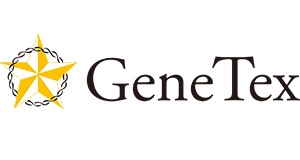SMAD1+5+8(9) antibody
SMAD1+5+8(9) antibody
Artikelnummer
GTX04895-100
Verpackungseinheit
100 μl
Hersteller
GeneTex
Verfügbarkeit:
wird geladen...
Preis wird geladen...
Application Note: WB: 1:500-1:2000. ICC/IF: 1:100-1:500. IHC-P: 1:50-1:200. *Optimal dilutions/concentrations should be determined by the researcher.Not tested in other applications.
Calculated MW: 52
Form: Liquid
Buffer (with preservative): PBS, 150mM NaCl, 50% Glycerol, 0.02% Sodium Azide.
Concentration: 1 mg/ml (Please refer to the vial label for the specific concentration.)
Background: The protein encoded by this gene is involved in the transforming growth factor beta signaling pathway that results in an inhibition of the proliferation of hematopoietic progenitor cells. The encoded protein is activated by bone morphogenetic proteins type 1 receptor kinase, and may be involved in cancer. Alternative splicing results in multiple transcript variants. [provided by RefSeq, Feb 2014]/The protein encoded by this gene belongs to the SMAD, a family of proteins similar to the gene products of the Drosophila gene 'mothers against decapentaplegic' (Mad) and the C. elegans gene Sma. SMAD proteins are signal transducers and transcriptional modulators that mediate multiple signaling pathways. This protein mediates the signals of the bone morphogenetic proteins (BMPs), which are involved in a range of biological activities including cell growth, apoptosis, morphogenesis, development and immune responses. In response to BMP ligands, this protein can be phosphorylated and activated by the BMP receptor kinase. The phosphorylated form of this protein forms a complex with SMAD4, which is important for its function in the transcription regulation. This protein is a target for SMAD-specific E3 ubiquitin ligases, such as SMURF1 and SMURF2, and undergoes ubiquitination and proteasome-mediated degradation. Alternatively spliced transcript variants encoding the same protein have been observed. [provided by RefSeq, Jul 2008]/The protein encoded by this gene is a member of the SMAD family, which transduces signals from TGF-beta family members. The encoded protein is activated by bone morphogenetic proteins and interacts with SMAD4. Two transcript variants encoding different isoforms have been found for this gene.[provided by RefSeq, Jan 2010]
Uniprot ID: Q99717/Q15797/O15198
Antigen Species: Human
Immunogen: A synthesized peptide derived from human SMAD1(Accession Q15797), corresponding to amino acid residues I438-S465. Sequence homology: Smad1, Smad5, Smad8, Smad9.
Purification: Purified by antigen-affinity chromatography
Conjugation: Unconjugated
Full Name: SMAD family member 1/SMAD family member 5/SMAD family member 9
Calculated MW: 52
Form: Liquid
Buffer (with preservative): PBS, 150mM NaCl, 50% Glycerol, 0.02% Sodium Azide.
Concentration: 1 mg/ml (Please refer to the vial label for the specific concentration.)
Background: The protein encoded by this gene is involved in the transforming growth factor beta signaling pathway that results in an inhibition of the proliferation of hematopoietic progenitor cells. The encoded protein is activated by bone morphogenetic proteins type 1 receptor kinase, and may be involved in cancer. Alternative splicing results in multiple transcript variants. [provided by RefSeq, Feb 2014]/The protein encoded by this gene belongs to the SMAD, a family of proteins similar to the gene products of the Drosophila gene 'mothers against decapentaplegic' (Mad) and the C. elegans gene Sma. SMAD proteins are signal transducers and transcriptional modulators that mediate multiple signaling pathways. This protein mediates the signals of the bone morphogenetic proteins (BMPs), which are involved in a range of biological activities including cell growth, apoptosis, morphogenesis, development and immune responses. In response to BMP ligands, this protein can be phosphorylated and activated by the BMP receptor kinase. The phosphorylated form of this protein forms a complex with SMAD4, which is important for its function in the transcription regulation. This protein is a target for SMAD-specific E3 ubiquitin ligases, such as SMURF1 and SMURF2, and undergoes ubiquitination and proteasome-mediated degradation. Alternatively spliced transcript variants encoding the same protein have been observed. [provided by RefSeq, Jul 2008]/The protein encoded by this gene is a member of the SMAD family, which transduces signals from TGF-beta family members. The encoded protein is activated by bone morphogenetic proteins and interacts with SMAD4. Two transcript variants encoding different isoforms have been found for this gene.[provided by RefSeq, Jan 2010]
Uniprot ID: Q99717/Q15797/O15198
Antigen Species: Human
Immunogen: A synthesized peptide derived from human SMAD1(Accession Q15797), corresponding to amino acid residues I438-S465. Sequence homology: Smad1, Smad5, Smad8, Smad9.
Purification: Purified by antigen-affinity chromatography
Conjugation: Unconjugated
Full Name: SMAD family member 1/SMAD family member 5/SMAD family member 9
| Artikelnummer | GTX04895-100 |
|---|---|
| Hersteller | GeneTex |
| Hersteller Artikelnummer | GTX04895-100 |
| Verpackungseinheit | 100 μl |
| Mengeneinheit | STK |
| Reaktivität | Human, Mouse (Murine), Rat (Rattus) |
| Klonalität | Polyclonal |
| Methode | Immunofluorescence, Immunohistochemistry (paraffin), Western Blotting, Immunocytochemistry |
| Isotyp | IgG |
| Human Gene ID | 4090/4086/4093 |
| Wirt | Rabbit |
| Konjugat | Unconjugated |
| Produktinformation (PDF) | Download |
| MSDS (PDF) |
|

 English
English







